How to clean garden tools: the best ways to keep your tools in perfect condition all year
The experts explain how to clean garden tools and maintain their performance

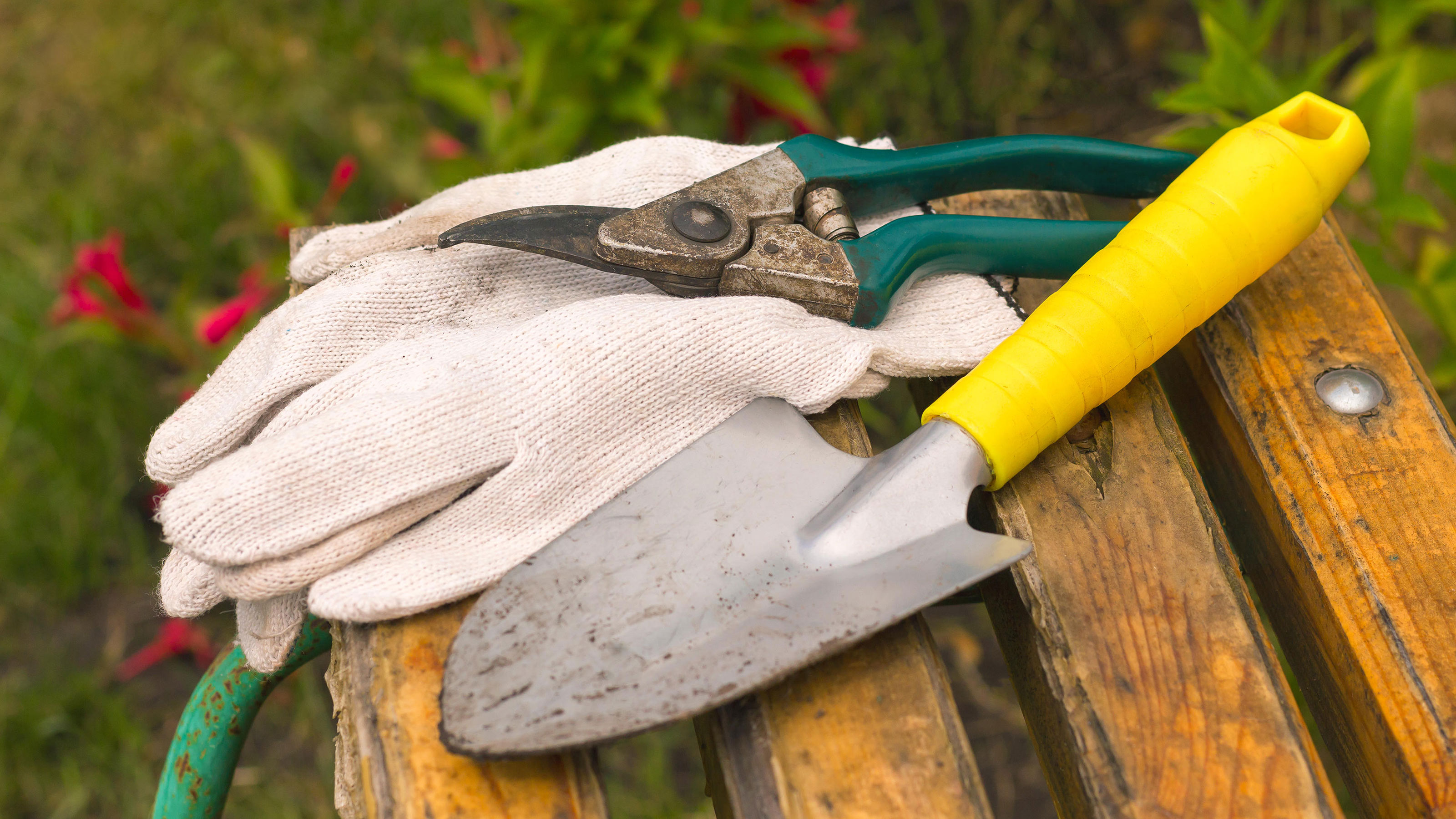
If you learn how to clean garden tools properly before putting them away, they'll be ready for use the next time you need them. Plus, you'll help them last longer.
It can be tempting to finish your yard work and put your garden tools back in the shed immediately. But, it doesn't take long to give everything from your garden shears to your secateurs a quick spruce – and a bit of oiling, if you have the time. You'll be thankful you did, next time you need to tick off a job in your garden – whether that's pruning, digging, or planting.
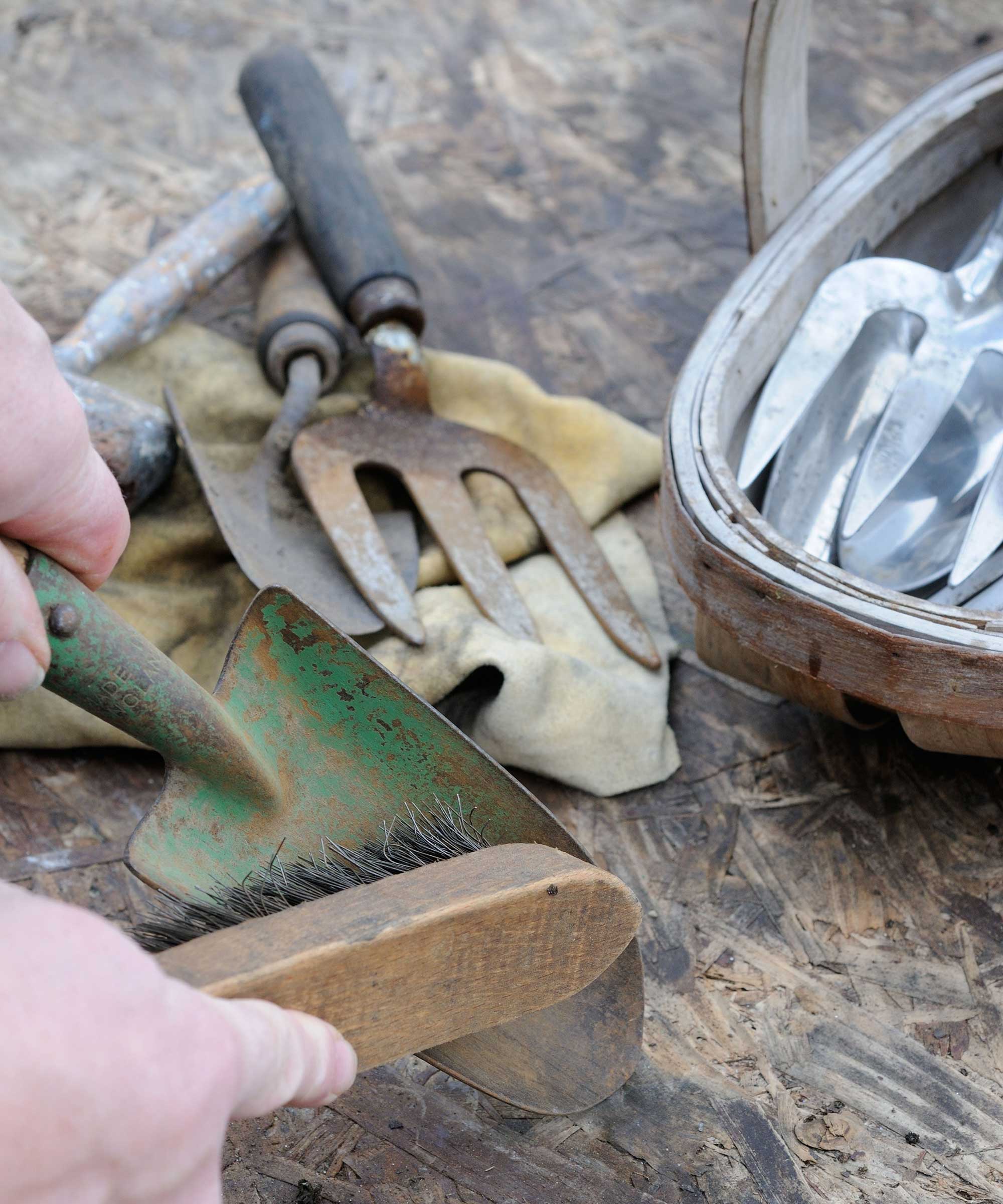
How to clean garden tools: a step-by-step guide
Cleaning tools isn't just about keeping them in good condition. It's also important for the health of your plants.
'Sterilizing your garden tools is vital if you want to make sure your plants stay healthy,' says Rian Habergham, a gardening and outdoors expert at Leisure Bench. 'It's especially important if you currently have one or more infected plants, as just one use of a contaminated gardening tool on a healthy plant can spread this infection further.'
To properly clean and sterilize your garden tools, Rian suggests the following:
- Use a brush to clean off any caked-on dirt and mud from your tools.
- Then, give them a good clean with warm soapy water and a sponge.
- Soaking metal tools, or the metal parts of tools, in 70% to 100% isopropyl alcohol will sterilize them. If you have wipes (available on Amazon) instead of liquid, these work just as well. Be careful not to get the alcohol on any wooden handles if you don't want to stain or spoil the finish. Also, bear in mind that isopropyl alcohol gives off a heavy scent and is highly flammable. Always use it outside, away from open flames, making sure you use protective clothing and gloves. White vinegar can also be used, either at full strength or diluted with water at a ratio of 50:50.
- If you've soaked your tools to sanitize them, be sure to rinse them afterwards and then dry them with a cloth before storage.
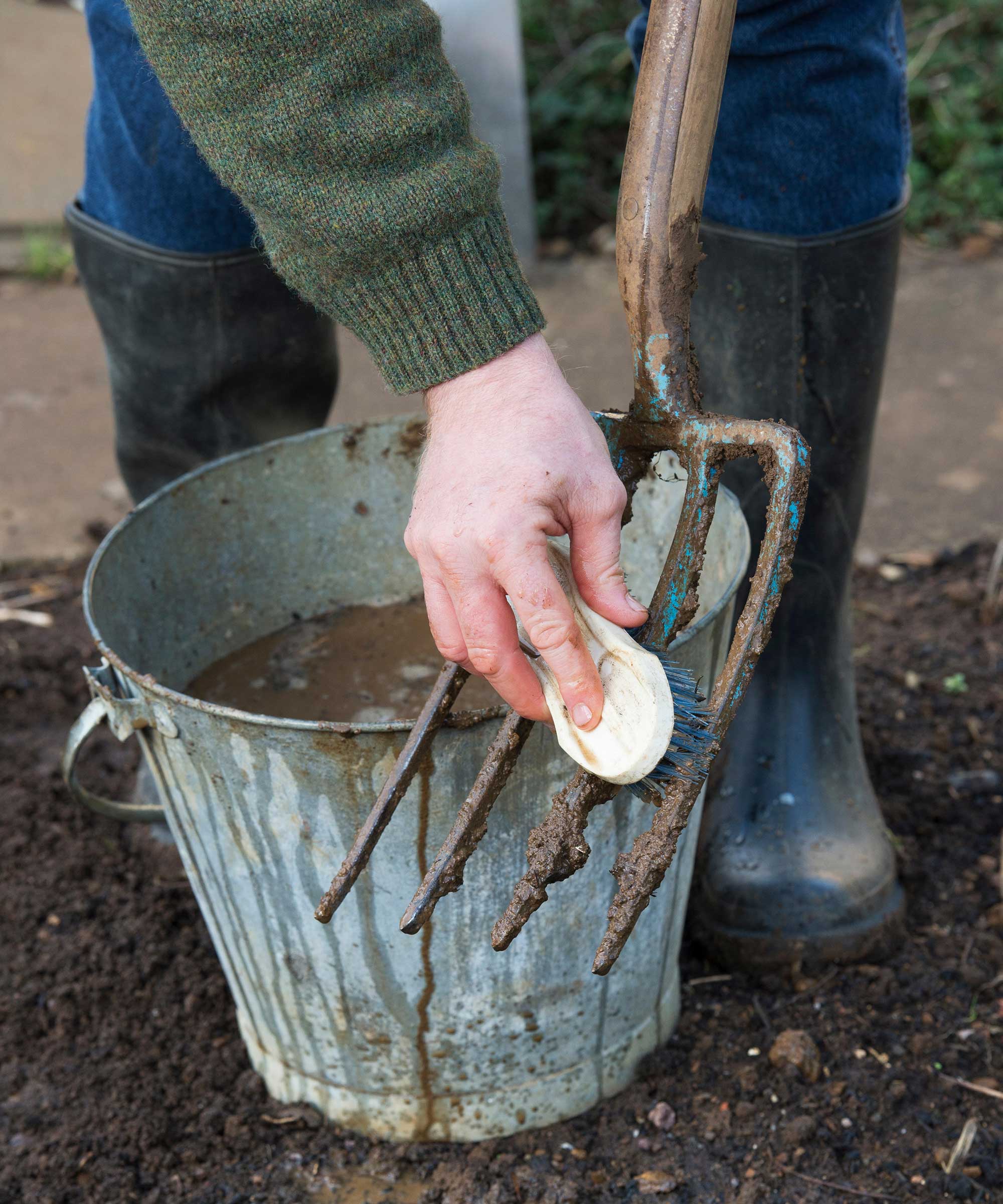
Should you oil garden tools?
Although cleaning rusty tools is possible, it's easier to prevent it from happening in the first place.
Paul McFadyen, metals specialist and Chief Executive at metals4U comments, 'Garden tools, such as trowels, spades, and rakes, are usually made out of metals such as steel and iron which are prone to rust. This can happen naturally over time if your tools are exposed to the elements – for example, leaving them out in the rain, or even worse, leaving soil on the tools which can trap moisture.'
By cleaning and then oiling the tools, you will help to protect them from rust. Doing so also reduces friction when using tools such as pruners.
You can oil wooden handles to protect them, too, as Rian explains.
- First, wash the tools in hot soapy water. Use a brush or sponge on the wooden handles to get rid of any dirt.
- If you find any splinters or rough edges on the wood, sand these down to make sure that they can't cause injury or damage the tool.
- Once the wood on the tools is completely dry, coat them with a light layer of oil to ensure that they don't become brittle. This also helps them to stay clear of excess moisture and dirt when being used. Linseed oil, available from Amazon is recommended for this, as it dries nice and quickly and covers well.
- You can also coat the rest of the tool with oil to prevent rust spots, rubbing it on with an old cloth.
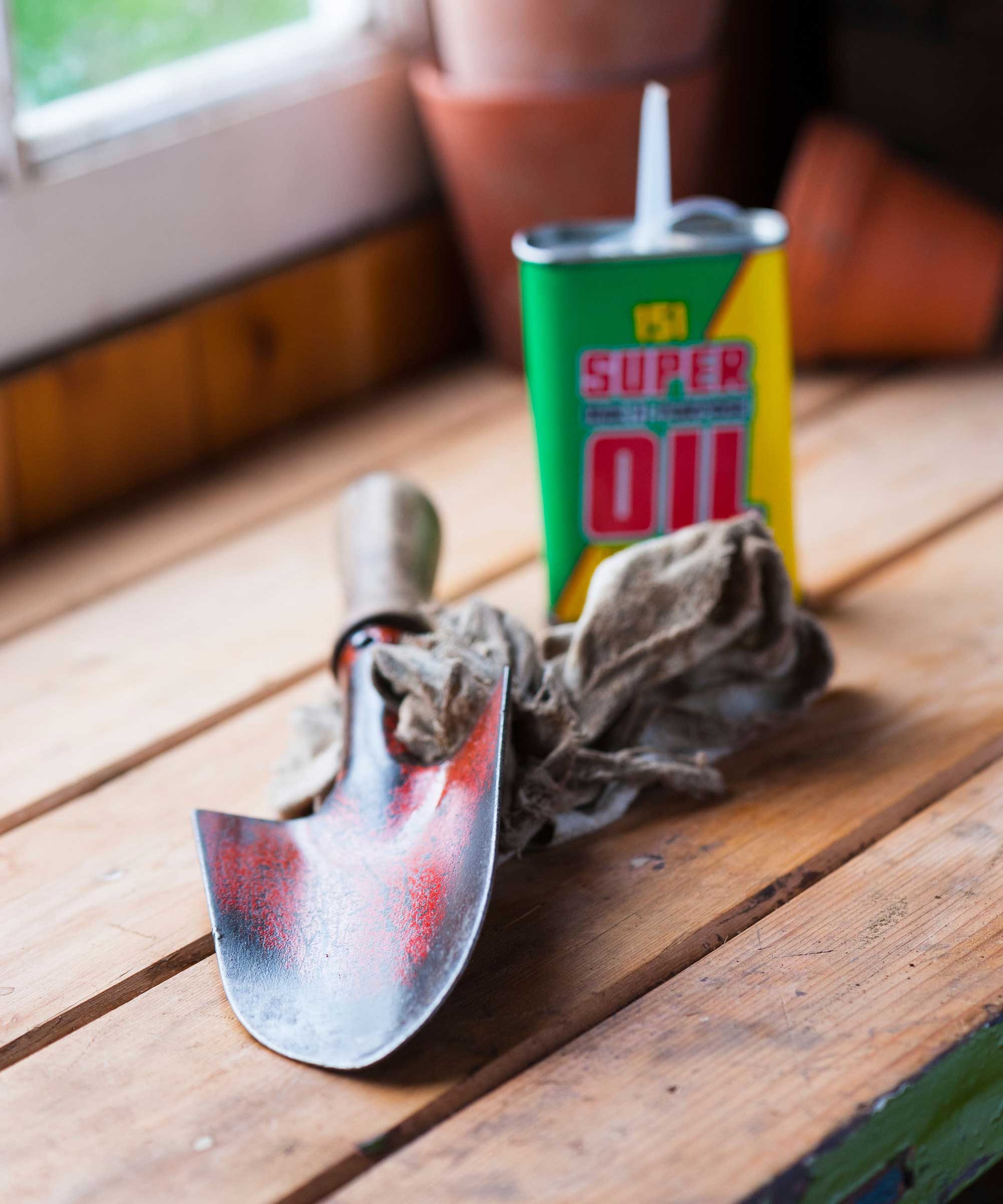
More tips for garden tool care
As well as learning how to clean garden tools, don't forget about the other aspects of maintenance. These include sharpening blades and storing all your tools properly.
Doing all of this is particularly important if you're planning on storing your tools away for an extended period of time – often the case in winter. For instance, Paul Hicks from STIHL says that when winterizing lawn mowers, hedge trimmers, and grass strimmers, any dirt and debris gathered throughout the spring and summer should be removed. 'We also recommend sharpening the cutting attachment, such as the saw chain, before putting these tools away,' he adds.
Sharpening garden shears is also a crucial part of maintenance. 'These work better with your plants and make gardening easier and more successful when they're sharp. Blunt tools are more likely to cause accidents and could eventually damage your plants,' Rian says. Whether you're using designated sharpeners, files, or sandpaper, remember that the angle at which you sharpen is vital: always follow the manufacturer's recommendations.
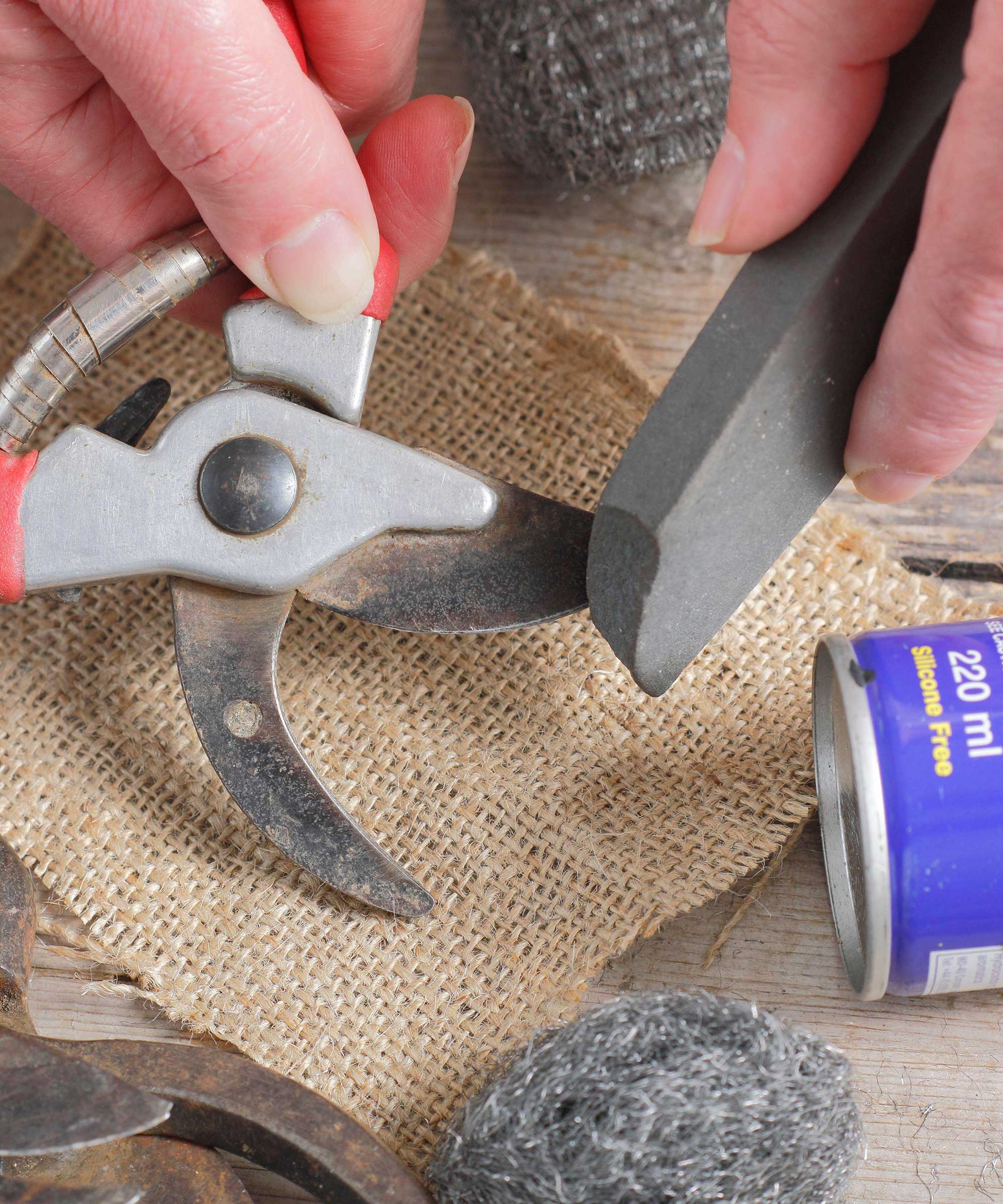
Once clean, it's important to store your garden tools properly so they're kept in the best condition until their next use. Your garden tool storage solution should always be somewhere waterproof, such as a shed or outhouse.
Paul explains that petrol and battery-powered tools have particular requirements, for instance, a pressure washer should be completely drained of water before it is stored away. This will help prevent any damage that could occur due to water freezing inside the machine.
'For petrol tools, it is best to store them without any fuel and with the fuel cap safely secured, and for any cordless tools where the battery can be removed, it is always advisable to remove the battery and store it at room temperature in a damp-free location,' Paul says. 'This is because cold weather can cause damage to the battery and make it unusable. Also, make sure the batteries have between 40 and 60% charge when left in storage.'

Freelance writer and author Flora Baker is a keen amateur gardener and houseplant enthusiast. Her small garden in South London is a constant work in progress as she gets to grips with snail prevention, DIY trellises and what to plant in shady spots overrun with ivy.
